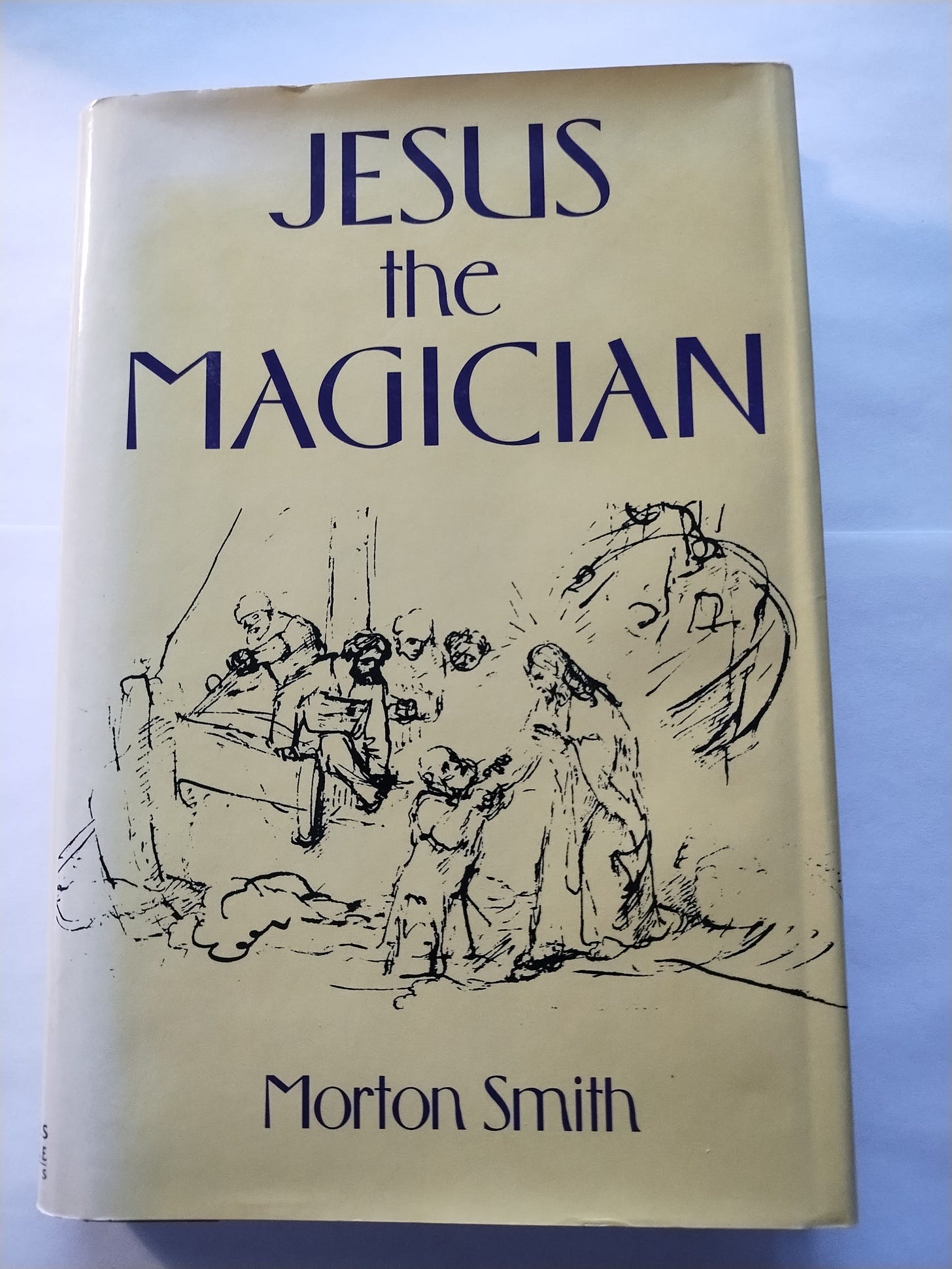"Jesus the Magician" by Morton Smith
"Jesus the Magician" by Morton Smith, first published in 1978, is a provocative and controversial exploration of the historical Jesus, presenting him not as a divine figure or traditional religious leader but as a wandering magician or miracle-worker in the context of first-century Palestine. Smith, a noted historian and biblical scholar, draws on a variety of ancient sources, including the New Testament, apocryphal texts, and Greco-Roman writings, to argue that Jesus’ actions—such as healings, exorcisms, and other miracles—align closely with the practices of itinerant magicians common in the Hellenistic world. He suggests that Jesus was perceived by his contemporaries, particularly his critics, as a practitioner of magic rather than a messiah or prophet, a view that challenged the orthodox Christian portrayal of Jesus as the Son of God.
Smith’s central thesis hinges on reinterpreting the Gospel accounts through a lens of skepticism toward their theological framing. He posits that the miracles attributed to Jesus, such as turning water into wine or raising the dead, were not unique divine acts but feats akin to those performed by other magicians or wonder-workers of the time, like Apollonius of Tyana. To support this, Smith examines hostile references to Jesus in Jewish and pagan sources, such as the Talmud and the works of Celsus, which accuse him of sorcery or deception. By emphasizing these perspectives, Smith argues that early Christian writers deliberately reshaped Jesus’ image to distance him from the stigma of magic, transforming him into a figure of divine authority in order to appeal to a broader audience and legitimize the emerging religion.
The book also delves into the cultural and historical context of magic in the ancient Mediterranean world, providing a detailed backdrop for Smith’s claims. Magic, in this period, was not merely superstition but a widespread and often respected practice, blending elements of religion, science, and performance. Smith explores how Jesus’ reported use of rituals, incantations (e.g., Aramaic phrases like "Talitha cumi"), and physical touch in healings mirrors the techniques of contemporary magicians. He further speculates that Jesus may have been trained in these arts, possibly during his unaccounted years, and that his charismatic persona and ability to gather followers were enhanced by his skill in such practices. This framing situates Jesus within a competitive landscape of religious and mystical figures vying for influence.
"Jesus the Magician" has sparked significant debate and criticism, particularly from religious scholars and theologians who view Smith’s interpretation as reductionist or overly speculative. Critics argue that he overemphasizes marginal sources while downplaying the spiritual and ethical dimensions of Jesus’ life that dominate the canonical Gospels. Despite this, the book remains a compelling work of historical scholarship, forcing readers to grapple with alternative perspectives on a figure central to Western civilization. Smith’s meticulous research and bold hypothesis invite a reconsideration of how history, faith, and cultural perception intertwine, making "Jesus the Magician" a lasting contribution to the study of early Christianity and the historical Jesus.
Morton Smith (1915–1991) was an American historian, biblical scholar, and professor renowned for his provocative contributions to the study of early Christianity and the historical Jesus. Smith spent much of his academic career at Columbia University, where he taught history and specialized in Greco-Roman religion, Judaism, and Christian origins. He gained widespread recognition—and controversy—with his 1958 discovery of a purportedly ancient manuscript at the Mar Saba monastery, which he claimed contained a secret gospel of Mark, a finding that fueled debates about its authenticity and implications. His most notable work, Jesus the Magician (1978), challenged conventional views by portraying Jesus as a Hellenistic magician, drawing on diverse sources like the New Testament, Talmud, and pagan writings. Known for his erudition, skepticism, and occasionally combative style, Smith’s scholarship continues to influence discussions on the historical Jesus, though his theories remain divisive among peers and theologians.
NOTE: I post what I consider to be interesting and informative reviews of various works that folks may not have heard of; this doesn’t necessarily mean that I agree with them. This particular book contains some interesting non-Christian references to Jesus and thus I think it’s an interesting read.




